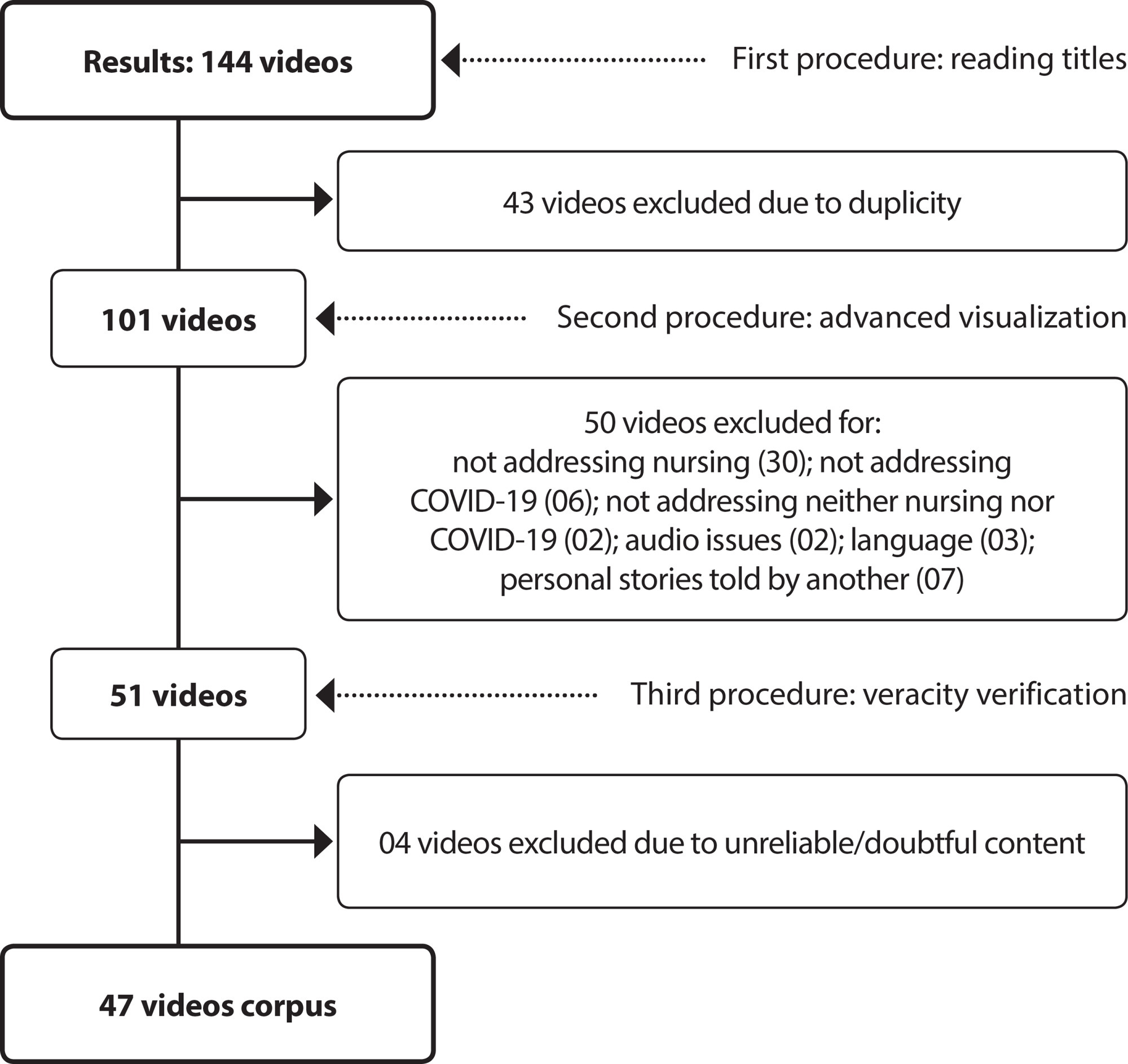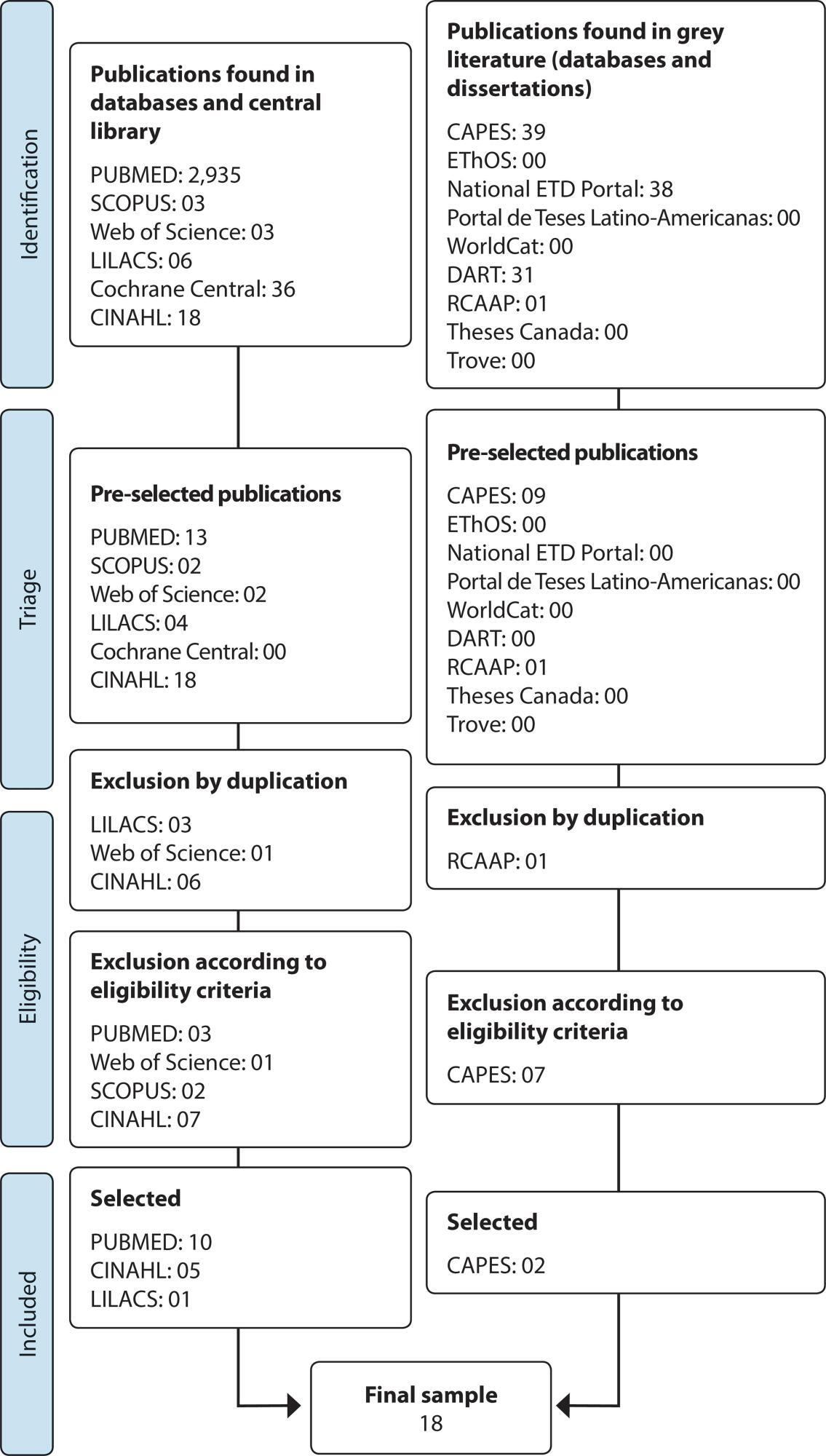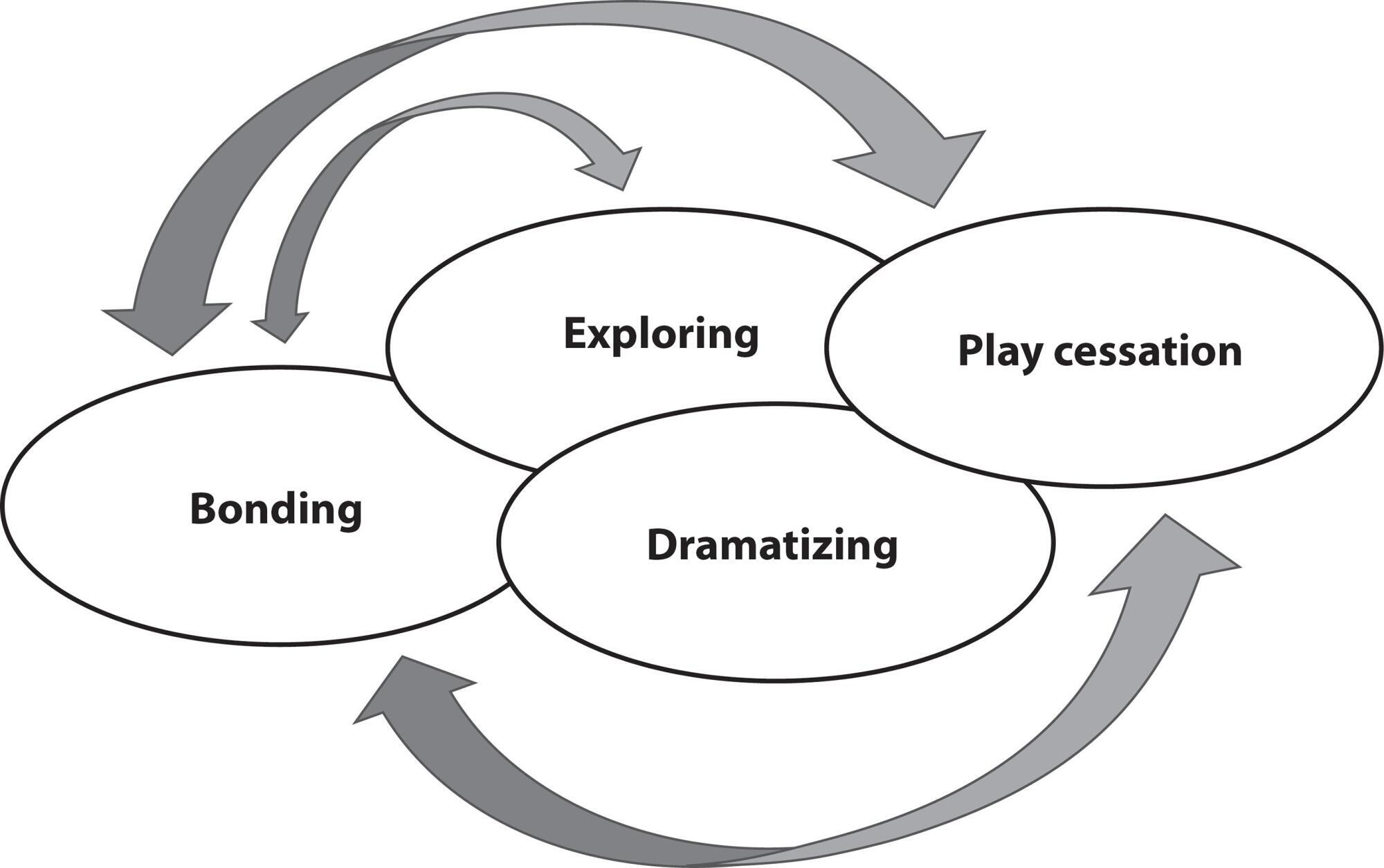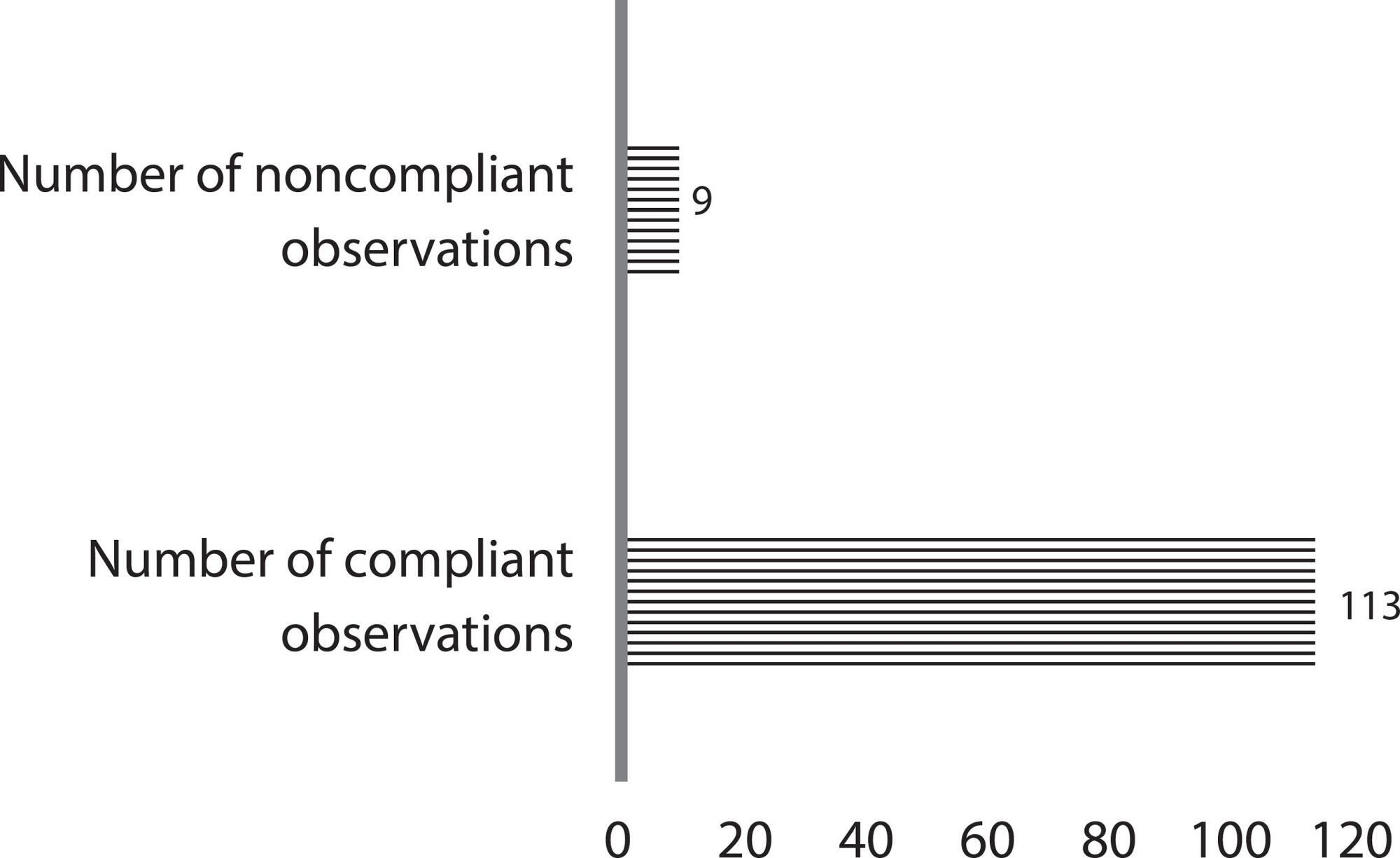-
ORIGINAL ARTICLE08-07-2023
Factors associated with the time to treat breast cancer in the pandemic period: an observational study
Revista Brasileira de Enfermagem. 2023;76:e20220428
Abstract
ORIGINAL ARTICLEFactors associated with the time to treat breast cancer in the pandemic period: an observational study
Revista Brasileira de Enfermagem. 2023;76:e20220428
DOI 10.1590/0034-7167-2022-0428
Views0See moreABSTRACT
Objectives:
to analyze the factors associated with the time to surgical treatment for breast cancer in patients seen at a reference mastology outpatient clinic in the State of Ceará.
Methods:
analytical, longitudinal study with medical charts from the Mastology Outpatient Clinic of Assis Chateaubriand Maternity School. We used 140 medical charts of breast cancer patients with surgeries performed during the pandemic.
Results:
the study evidenced associations between schooling and shorter time to treatment in patients who underwent biopsy before the first outpatient visit (p = 0.026; OR: 0.16; CI = 0.03-0.85); in the group who had the biopsy performed by the outpatient clinic, was associated the type of tumor (p = 0.019) and neoadjuvant therapy (p = 0.000).
Conclusions:
the lesser educational level, tumor type, and use of neoadjuvant therapy were factors associated with the time to treatment during the pandemic period.
-
ORIGINAL ARTICLE08-07-2023
Nursing students’ knowledge and attitude in relation to COVID-19 prevention behavior
Revista Brasileira de Enfermagem. 2023;76:e20220588
Abstract
ORIGINAL ARTICLENursing students’ knowledge and attitude in relation to COVID-19 prevention behavior
Revista Brasileira de Enfermagem. 2023;76:e20220588
DOI 10.1590/0034-7167-2022-0588
Views0See moreABSTRACT
Objectives:
to determine the correlation between nursing students’ level of knowledge and attitudes toward COVID-19 prevention behavior.
Methods:
a cross-sectional study was carried out at the Private University in Indonesia. Accidental sampling was used to select 188 third-year bachelor’s nursing students as respondents. Data collection was conducted through an online questionnaire (Cronbach’s Alpha 0.799-0.959) consisting of 27 questions. The data were analyzed descriptively and inferentially.
Results:
as many as 49.5 % of respondents had high knowledge, 98.4 % had a positive attitude, and 89.9 % had positive behavior in preventing COVID-19 transmission. The Chi-square test revealed that knowledge has no correlation with COVID-19 prevention behavior (p-value 0.864), but attitude did (p-value 0.027).
Conclusions:
nursing students’ attitudes are related to behavior in preventing COVID-19. Nursing students are expected to maintain positive attitudes and behaviors toward COVID-19 prevention as future health workers at the forefront of health services.
-
08-07-2023
Conhecimento e atitude dos estudantes de enfermagem em relação ao comportamento de prevenção à COVID-19
Revista Brasileira de Enfermagem. 2023;76:e20220588
Abstract
Conhecimento e atitude dos estudantes de enfermagem em relação ao comportamento de prevenção à COVID-19
Revista Brasileira de Enfermagem. 2023;76:e20220588
DOI 10.1590/0034-7167-2022-0588
Views0See moreRESUMEN
Objetivos:
determinar la correlación entre el nivel de conocimiento y las actitudes de los estudiantes de enfermería en relación a la conducta de prevención de la COVID-19.
Métodos:
estudio transversal realizado en una Universidad Privada de Indonesia. Se utilizó un muestreo accidental para seleccionar a 188 estudiantes de tercer año de enfermería como encuestados. La recolección de datos se realizó mediante un cuestionario en línea que consta de 27 preguntas (alfa de Cronbach 0.799-0.959). Los datos fueron analizados de forma descriptiva e inferencial.
Resultados:
el 49,5 % de los encuestados tenía conocimientos altos, el 98,4 % tenía una actitud positiva y el 89,9 % tenía un comportamiento positivo en la prevención de la transmisión de la COVID-19. La prueba de Chi-cuadrado reveló que el conocimiento no tiene correlación con el comportamiento de prevención de COVID-19 (valor de p 0,864), pero la actitud sí (valor de p 0,027).
Conclusiones:
las actitudes de los estudiantes de enfermería están relacionadas con el comportamiento en la prevención del COVID-19. Se espera que los estudiantes de enfermería mantengan actitudes y comportamientos positivos hacia la prevención de COVID-19 como futuros profesionales de la salud en la primera línea de los servicios de salud.
-
08-07-2023
Senso de coerência e apoio social como preditores de saúde mental durante a pandemia de COVID-19
Revista Brasileira de Enfermagem. 2023;76:e20220468
Abstract
Senso de coerência e apoio social como preditores de saúde mental durante a pandemia de COVID-19
Revista Brasileira de Enfermagem. 2023;76:e20220468
DOI 10.1590/0034-7167-2022-0468
Views0See moreRESUMEN
Objetivos:
verificar el papel del sentido de coherencia, sentido de coherencia nacional, apoyo social y confianza en las instituciones como predictores de salud mental en brasileños durante la pandemia de COVID-19.
Métodos:
estudio transversal, realizado de noviembre de 2020 a enero de 2021 mediante cuestionario online. Se utilizaron instrumentos estandarizados. La muestra estuvo compuesta por 1.630 brasileños. En el análisis de datos se realizaron correlación de Pearson y regresión lineal.
Resultados:
el sentido de coherencia fue el único predictor de ansiedad [β= -0,61;p<0,001], explicando el 38% de la variación de sus puntuaciones, mientras que el sentido de coherencia [β=0,52;p<0,001], sentido de coherencia nacional [β= 0,16;p<0,001] y apoyo social [β=0,15;p<0,001] fueron predictores de salud mental positiva y en conjunto explicaron el 51% de su variación.
Conclusiones:
los hallazgos sugieren que sentido de coherencia, sentido de coherencia nacional y el apoyo social representan importantes predictores de salud mental y que el fortalecimiento de estos recursos, podría potencialmente promover la salud mental de los brasileños.
-
ORIGINAL ARTICLE08-07-2023
Sense of coherence and social support as predictors of mental health during COVID-19 pandemic
Revista Brasileira de Enfermagem. 2023;76:e20220468
Abstract
ORIGINAL ARTICLESense of coherence and social support as predictors of mental health during COVID-19 pandemic
Revista Brasileira de Enfermagem. 2023;76:e20220468
DOI 10.1590/0034-7167-2022-0468
Views0See moreABSTRACT
Objectives:
to verify the role of sense of coherence, sense of national coherence, social support and trust in institutions to predict mental health in Brazilians during the COVID-19 pandemic.
Methods:
a cross-sectional study, carried out from November, 2020 to January, 2021 via an online survey. Standardized instruments were used. The sample consisted of 1,630 Brazilians. Pearson’s correlation and linear regression were performed in data analysis.
Results:
sense of coherence was the only predictor of anxiety [β= -0.61; p<0.001], explaining 38% of the variance in its scores, while sense of coherence [β= 0.52; p<0.001], sense of national coherence [β= 0.16; p<0.001], and social support [β= 0.15; p<0.001] predicted positive mental health and together explained 51% of its variance.
Conclusions:
the findings suggest that sense of coherence, sense of national coherence and social support represent important predictors for mental health and that strengthening these resources, could potentially promote Brazilians’ mental health.
-
ORIGINAL ARTICLE07-31-2023
Primary Health Care assessment in the COVID-19 pandemic from physicians’ and nurses’ perspective
Revista Brasileira de Enfermagem. 2023;76:e20220475
Abstract
ORIGINAL ARTICLEPrimary Health Care assessment in the COVID-19 pandemic from physicians’ and nurses’ perspective
Revista Brasileira de Enfermagem. 2023;76:e20220475
DOI 10.1590/0034-7167-2022-0475
Views0See moreABSTRACT
Objectives:
to assess the operationalization of Primary Health Care in the COVID-19 pandemic, according to Primary Care Assessment Tool: PCATool-Brasil attributes, from physicians’ and nurses’ perspective.
Methods:
a cross-sectional study, carried out with 99 physicians and nurses from Basic Health Units in a state in northeastern Brazil, with the aid of the adapted instrument PCATool-Brasil.
Results:
Essential Score was classified as high performance (6.6) and General Score as low performance (6.5). First Contact Access, Care Integration, and Community Guidance scores were <6.6. The best performances were attributed to the Longitudinality, Comprehensiveness and Family Guidance services (scores>6.6).
Conclusions:
the attributes of Primary Health Care, in general, showed values above or close to the cut-off point in the assessment. These data can support strategies for local and national managers to strengthen Primary Health Care in the COVID-19 pandemic and future public health emergencies.
-
07-31-2023
Breastfeeding prevalence in newborns of mothers with COVID-19: a systematic review
Revista Brasileira de Enfermagem. 2023;76:e20220173
Abstract
Breastfeeding prevalence in newborns of mothers with COVID-19: a systematic review
Revista Brasileira de Enfermagem. 2023;76:e20220173
DOI 10.1590/0034-7167-2022-0173
Views0See moreABSTRACT
Objectives:
to compare exclusive breastfeeding prevalence versus artificial feeding in newborns of mothers with COVID-19.
Methods:
a systematic review of prevalence, according to JBI. Searches in PubMed®, Embase, CINAHL, LILACS and Web of Science™ databases in August 2021. Cross-sectional, longitudinal or cohort studies were selected, without language and time limitations that showed breastfeeding prevalence or that allowed calculation.
Results:
fifteen articles published in 2020 and 2021, cohort (60%) or cross-sectional (40%) were analyzed. The average of exclusive breastfeeding in mothers with COVID-19 was 56.76% (CI=39.90–72.88), and artificial breastfeeding, 43.23% (CI = 30.99 – 55.88), without statistically significant differences.
Conclusions:
despite the recommendations for maintaining breastfeeding, there was a reduction worldwide, when compared to periods prior to the pandemic. With advances in science, these rates have improved, showing the impact of evidence on practices. As limitations, study sources are cited. It is recommended to carry out new studies. PROSPERO registration CRD42021234486.

-
ORIGINAL ARTICLE07-31-2023
Sociodemographic profile, diagnoses and nursing care in post-COVID-19 patients in a Brazilian university hospital
Revista Brasileira de Enfermagem. 2023;76:e20220730
Abstract
ORIGINAL ARTICLESociodemographic profile, diagnoses and nursing care in post-COVID-19 patients in a Brazilian university hospital
Revista Brasileira de Enfermagem. 2023;76:e20220730
DOI 10.1590/0034-7167-2022-0730
Views0See moreABSTRACT
Objectives:
to analyze the sociodemographic profile, diagnoses and nursing care of post-COVID-19 patients admitted to a university hospital in southern Brazil.
Methods:
a retrospective cohort study. The sample consisted of 1,467 medical records, from January 2020 to January 2021.
Results:
from the analyzed medical records, the most prevalent profiles, respectively, included: males (52.9%); white (81.1%); with Impaired Physiological Balance Syndrome* Nursing Diagnosis (77.3%); nursing care implementing aerosol precautions (94.5%); implementing droplet precautions (93.4%); checking vital signs (91.9%); applying standard disinfectant to equipment and surfaces (89.6%).
Conclusions:
the analysis of the sociodemographic profile, diagnoses and nursing care of patients in this study may contribute to implementing the Nursing Process in the coronavirus pandemic context.

-
02-05-2021
Contents related to nursing professionals during the COVID-19 pandemic on the Youtube™ platform
Revista Brasileira de Enfermagem. 2021;74:e20200581
Abstract
Contents related to nursing professionals during the COVID-19 pandemic on the Youtube™ platform
Revista Brasileira de Enfermagem. 2021;74:e20200581
DOI 10.1590/0034-7167-2020-0581
Views0See moreABSTRACT
Objective:
to characterize the content of Youtube™ videos related to nursing professionals during the COVID-19 pandemic.
Method:
a qualitative study that examined 47 videos on Youtube™ posted between 11/03 and 11/04 2020, which were subjected to thematic analysis.
Results:
four categories emerged: “the role of nurses in care production during the pandemic”, which addresses the management of services and individual care; “Overview of the pandemic from the perspective of nurses in different countries”, presenting experiences and encouraging physical distance; “Tributes and motivation to mobilize the category”, in addition to targeted tributes, calls for nurses to claim their rights; “Criticisms and demands to improve working conditions”, which highlights the insecurity of care provision settings.
Final considerations:
nursing work conditions in different countries, recognition of the importance of professionals during the pandemic, and claims of the category to improve working conditions were the main content found on Youtube™.

-
REVIEW07-13-2020
Prevention and control measures for neonatal COVID-19 infection: a scoping review
Revista Brasileira de Enfermagem. 2020;73:e20200467
Abstract
REVIEWPrevention and control measures for neonatal COVID-19 infection: a scoping review
Revista Brasileira de Enfermagem. 2020;73:e20200467
DOI 10.1590/0034-7167-2020-0467
Views0See moreABSTRACT
Objective:
to identify with the literature the measures to prevent and control neonatal infection by COVID-19.
Methods:
a scope review carried out by searching for studies in databases and institutional health websites. The final sample was 25 articles.
Results:
among the main measures are the use of masks by suspected or infected people in contact with healthy newborns, hand hygiene before and after each care and feeding as well as the tools used for milking. It is indispensable to use personal protective equipment by health professionals in neonatology services to maintain a private room for infected newborns or to use physical barriers. Early diagnosis and timely case management is essential to reduce virus transmissibility.
Conclusions:
the research contributed to elucidate health and nursing actions in preventing and controlling neonatal infection by COVID-19.

-
REVIEW06-17-2020
Prevention and conduct against the Extravasation of antineoplastic chemotherapy: a scoping review
Revista Brasileira de Enfermagem. 2020;73(4):e20190008
Abstract
REVIEWPrevention and conduct against the Extravasation of antineoplastic chemotherapy: a scoping review
Revista Brasileira de Enfermagem. 2020;73(4):e20190008
DOI 10.1590/0034-7167-2019-0008
Views0See moreABSTRACT
Objectives:
to identify and synthesize scientific evidence on prevention and management of extravasation of antineoplastic agents in adult patients by nurses.
Methods:
scoping review, according to Joanna Briggs Institute and PRISMA-ScR. Research was conducted in five electronic databases, Cochrane Library and eight catalogs of theses and dissertations. Data collection occurred from April to July 2018, with no time limit. The extracted data were analyzed and synthesized in a narrative way.
Results:
a total of 3,110 records were retrieved and 18 studies were kept for review. Most publications (66.6%) had a qualitative approach and addressed both aspects, i.e., prevention and management of extravasation of chemotherapy in adult patients.
Conclusions:
the implementation of protocols based on scientific evidence on prevention and management of extravasation of antineoplastic agents is paramount in order to provide patient safety and support to the nursing staff.

-
REFLECTION09-07-2020
Training and work process in Multiprofessional Residency in Health as innovative strategy
Revista Brasileira de Enfermagem. 2020;73(6):e20190635
Abstract
REFLECTIONTraining and work process in Multiprofessional Residency in Health as innovative strategy
Revista Brasileira de Enfermagem. 2020;73(6):e20190635
DOI 10.1590/0034-7167-2019-0635
Views0See moreABSTRACT
Objectives: To
reflect about education in health and work process on three programs of multiprofessional residency in Florianópolis/SC.
Method:
Reflexive study about Multiprofessional Residency Health Programs of Florianópolis.
Results:
Multiprofessional Residency characterizes training health professionals through service education. Developing these professionals’ specialization with assignments that promote professional exercise and magnifies multiprofessional work at the same time, for excellency in unabridged healthcare.
Final Considerations:
Multiprofessional Residency Programs make interdisciplinary education, sharing knowledge between residents and other professionals stimulating development of innovation skills.
-
ORIGINAL ARTICLE06-08-2020
Understanding the dramatic therapeutic play session: a contribution to pediatric nursing
Revista Brasileira de Enfermagem. 2020;73(4):e20180812
Abstract
ORIGINAL ARTICLEUnderstanding the dramatic therapeutic play session: a contribution to pediatric nursing
Revista Brasileira de Enfermagem. 2020;73(4):e20180812
DOI 10.1590/0034-7167-2018-0812
Views0See moreABSTRACT
Objectives:
to understand how the dramatic therapeutic play session occurs within the care of hospitalized children.
Methods:
qualitative multiple case study, using theoretical references, such as symbolic interactionism and Vygotsky’s theory of symbolic play. Twenty play sessions performed with six children from 3 to 10 years old were analyzed, each corresponding to one case.
Results:
these sessions demonstrated that a dramatic therapeutic play session is a process of four interdependent and complementary steps: bonding, exploring, dramatizing, and play cessation. They also revealed the imaginary situations externalized by the child, the importance of the exploration step for which they manage the imaginary situation and catharsis, and how her higher psychological faculties are articulated during this process.
Final Considerations:
the results contribute to the understanding of the conduct and analysis of the dramatic therapeutic play session, reinforcing the importance of its use in pediatric nursing care practice.

-
ORIGINAL ARTICLE02-10-2020
Motivation and difficulties to reduce or quit smoking
Revista Brasileira de Enfermagem. 2020;73(1):e20180188
Abstract
ORIGINAL ARTICLEMotivation and difficulties to reduce or quit smoking
Revista Brasileira de Enfermagem. 2020;73(1):e20180188
DOI 10.1590/0034-7167-2018-0188
Views0See moreABSTRACT
Objective:
To understand what factors motivate people to reduce or stop tobacco use and what difficulties they face in this process.
Method:
Qualitative, empirical and interpretative research that used a focal group technique for data collection and Discourse Analysis as a theoretical reference for analysis.
Results:
The responses centered on the following aspects: motivation for reduction or cessation of smoking, family and community support received during treatment, benefits from cessation of tobacco, difficulties encountered and strategies for overcoming triggers.
Final Considerations:
The results showed that the users expressed their desire for cessation of tobacco use and that to achieve this goal, family and group support, professional help and changing habits are key factors for this process.
-
ORIGINAL ARTICLE02-10-2020
Common mental disorders in nursing students of the professionalizing cycle
Revista Brasileira de Enfermagem. 2020;73(1):e20180154
Abstract
ORIGINAL ARTICLECommon mental disorders in nursing students of the professionalizing cycle
Revista Brasileira de Enfermagem. 2020;73(1):e20180154
DOI 10.1590/0034-7167-2018-0154
Views0See moreABSTRACT
Objectives:
to verify the suspicion of common mental disorders in nursing students of the professionalizing cycle and the association with sociodemographic features.
Method:
cross-sectional study with a sample of 85 students from a public university in the state of Rio de Janeiro (RJ) who responded to the Self-Report Questionnaire-20 and sociodemographic questions.
Results:
the suspicion prevalence of common mental disorders (CMD) in the sample was 55.3% and it was identified the association with the consumption of alcohol. Of the most frequent SRQ-20 complaints, 95.3% reported “feeling nervous, tense or worried”, 72.9% “having difficulty making decisions”, 60% “sleeping poorly” and 37.6% “having lost interest by things “.
Conclusion:
high prevalence of CMD in the sample and the association with the consumption of alcohol requires preventive and therapeutic actions among the students that minimize the possibility of severe mental disorders related to the consumption of alcohol and other drugs.
-
ORIGINAL ARTICLE06-27-2019
Insertion of central vascular catheter: adherence to infection prevention bundle
Revista Brasileira de Enfermagem. 2019;72(3):774-779
Abstract
ORIGINAL ARTICLEInsertion of central vascular catheter: adherence to infection prevention bundle
Revista Brasileira de Enfermagem. 2019;72(3):774-779
DOI 10.1590/0034-7167-2018-0124
Views0See moreABSTRACT
Objective:
To evaluate the compliance of the care process involving insertion of central vascular catheter (CVC) in hemodialysis.
Method:
Cross-sectional quantitative approach developed at the hemodialysis service of a reference hospital in Sergipe, Brazil. Sample consisting of 1,342 actions evaluated, corresponding to 122 forms for monitoring and control of CVC insertion. Data collection was held from July to December 2016.
Results:
The adherence rate to the use of the insertion form was 54.9%. The procedure evaluated achieved 93% overall compliance. Of the 11 specific actions observed, seven (64%) presented 100% compliance. The density of the overall incidence of primary bloodstream infections reduced from 10.6 to 3.1 infections per 1,000 patients/day.
Conclusion:
Although the observed actions reached specific desired conformities, the use of the checklist was lower than expected. Strategies for monitoring, coaching and educational and organizational actions can contribute to safe care.

Search
Search in:
Nuvem de Tags
Adolescente (85) Atenção Primária à Saúde (239) COVID-19 (91) Criança (91) Cuidados de Enfermagem (269) Educação em Enfermagem (151) Educação em Saúde (139) Enfermagem (930) Enfermagem Pediátrica (86) Estudantes de Enfermagem (77) Estudos de Validação (131) Família (87) Idoso (208) Promoção da Saúde (99) Qualidade de Vida (104) Saúde do Trabalhador (86) Saúde Mental (145) Saúde Pública (82) Segurança do Paciente (150) Tecnologia Educacional (100)



